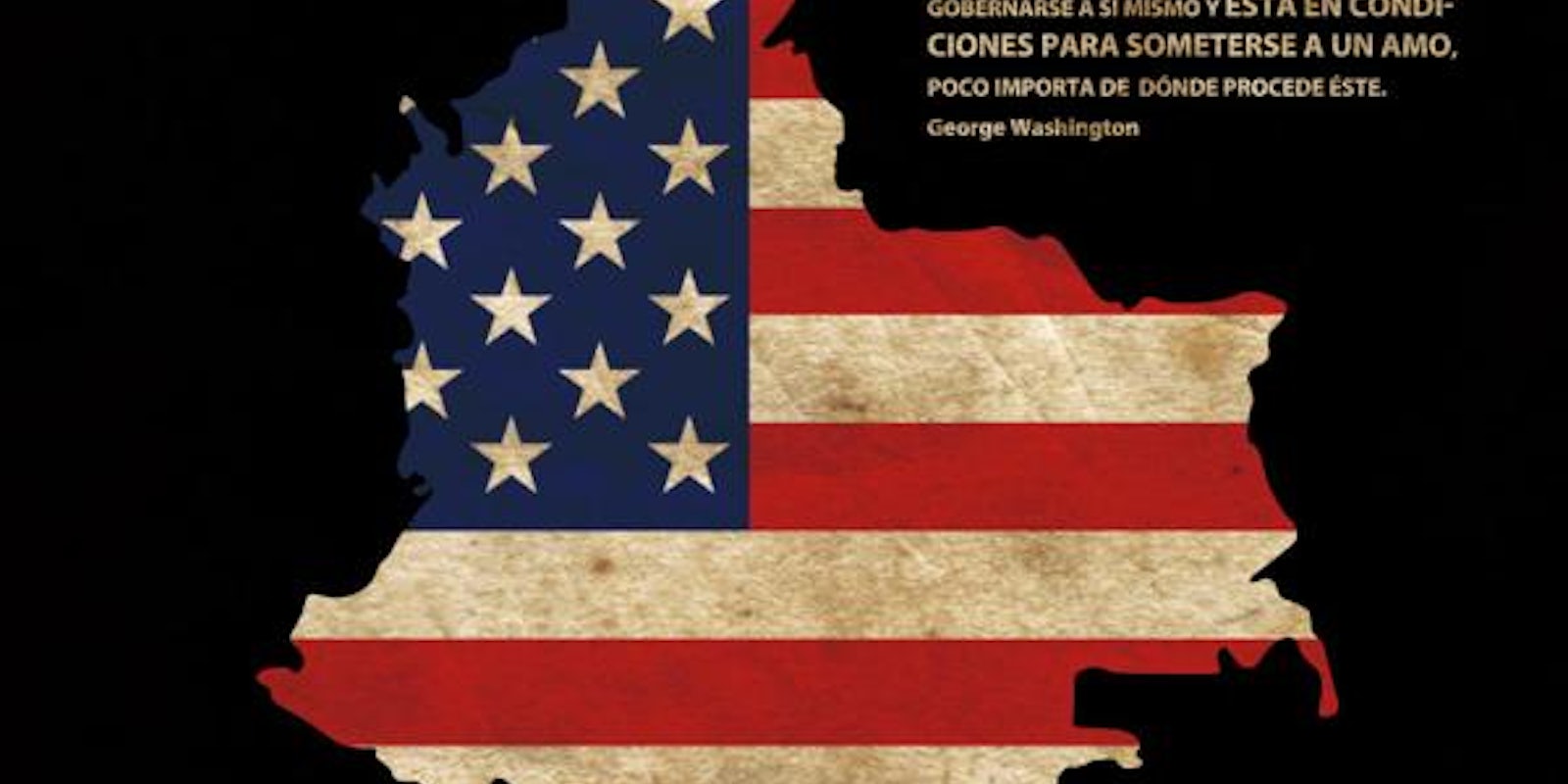Colombian Internet pirates have long enjoyed lax law enforcement. Now, a new law threatens to subject even the most innocuous user to severe penalties.
Colombia is trying to pass a new copyright bill, Law 201, through a legislative fast-tracking technique called a “pupitrazo.” Meaning “slap on the table,” this means the bill can “overstep various legislative rules,” according to the Electronic Frontier Foundation. The bill is possibly timed to better meet the requirements of its Free Trade Agreement with the United States before President Obama visits on Saturday.]
Colombia is on the Office of the U.S. Trade Representative’s watch list of countries that abuse U.S. copyright law.
A consortium of American and Colombian legal experts and lawyers have banded together against Law 201. They’ve written a joint letter the Colombian government, decrying the bill’s penalties for illegal downloaders as far too harsh.
The group has two major concerns. First, Law 201 makes no distinction between a citizen who unknowingly downloads a single copyrighted file, and a hardened pirate who deliberately uploads files day in and day out.
Noting that Law 201’s scope is far broader than the FTA requests, the experts write:
“The FTA requires only that ‘willful’ criminal infringers be punished in a fashion that will generate a deterrent effect. The Bill, by contrast, would impose criminal sanctions on a wider range of infringers, including those who were unaware that they were breaking the law…. Furthermore, no threshold level is established for the imposition of the most severe criminal penalties on non-commercial infringers; in the U.S., by contrast, an ordinary infringer must make at least 10 copies with a value of at least $2,500 within a 180-day period.”
The group’s second concern is that Law 201 authorizes extreme punishment for common infringements.
“Minimum prison sentences of four years, for even relatively minor violations, are unheard of in most countries. In the United States, for example, a five year sentence is the maximum permitted for a first offender. Similarly, fines of 26.66 to 1,000 times monthly wages, even for minor offenses, unrelated to actual harms imposed or profits gained, appear to disregard the fundamental principle of proportional punishment.”
It adds a frightening hypothetical scenario for a casual downloader: “Even a non-commercial infringer earning $12,000 per year could count on being fined more than $25,000 in a criminal proceeding that could be brought at the government’s discretion.”
Spanish-speaking members of the hacktivist collective Anonymous have mounted a campaign against Law 201, releasing a condemnatory YouTube video that’s been watched almost 10,000 times. The group has also created a Facebook page that picks the law apart, article by article.
The group even went so far as to attack the Colombian Senate’s homepage on March 27, rendering it inaccessible.
On Tuesday, the group took the site down again. One Twitter account associated with Anonymous tweeted, “Anonymous has blocked access to the Senate of the Republic as demonstration.”
Photo via @Anonymous_Co
